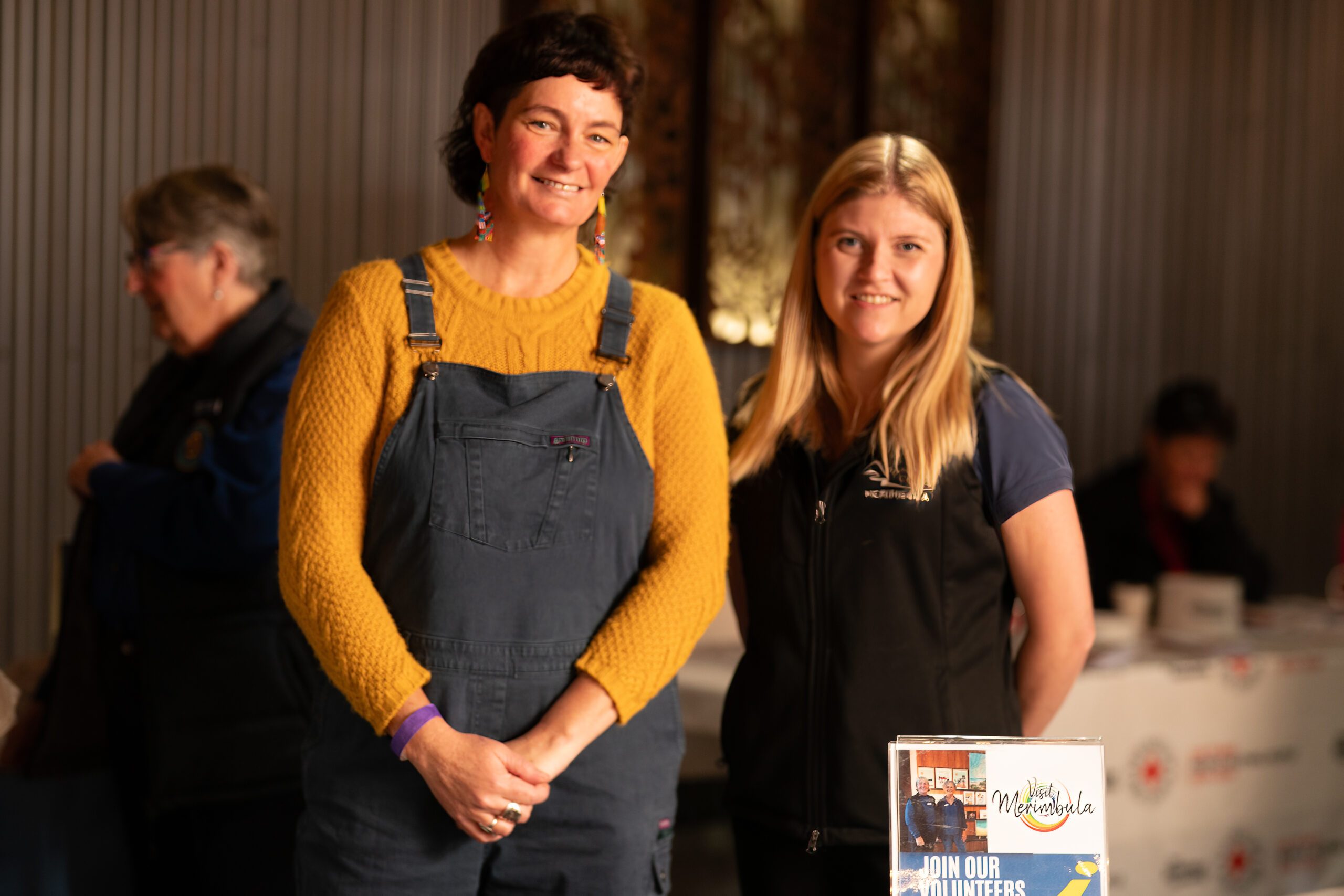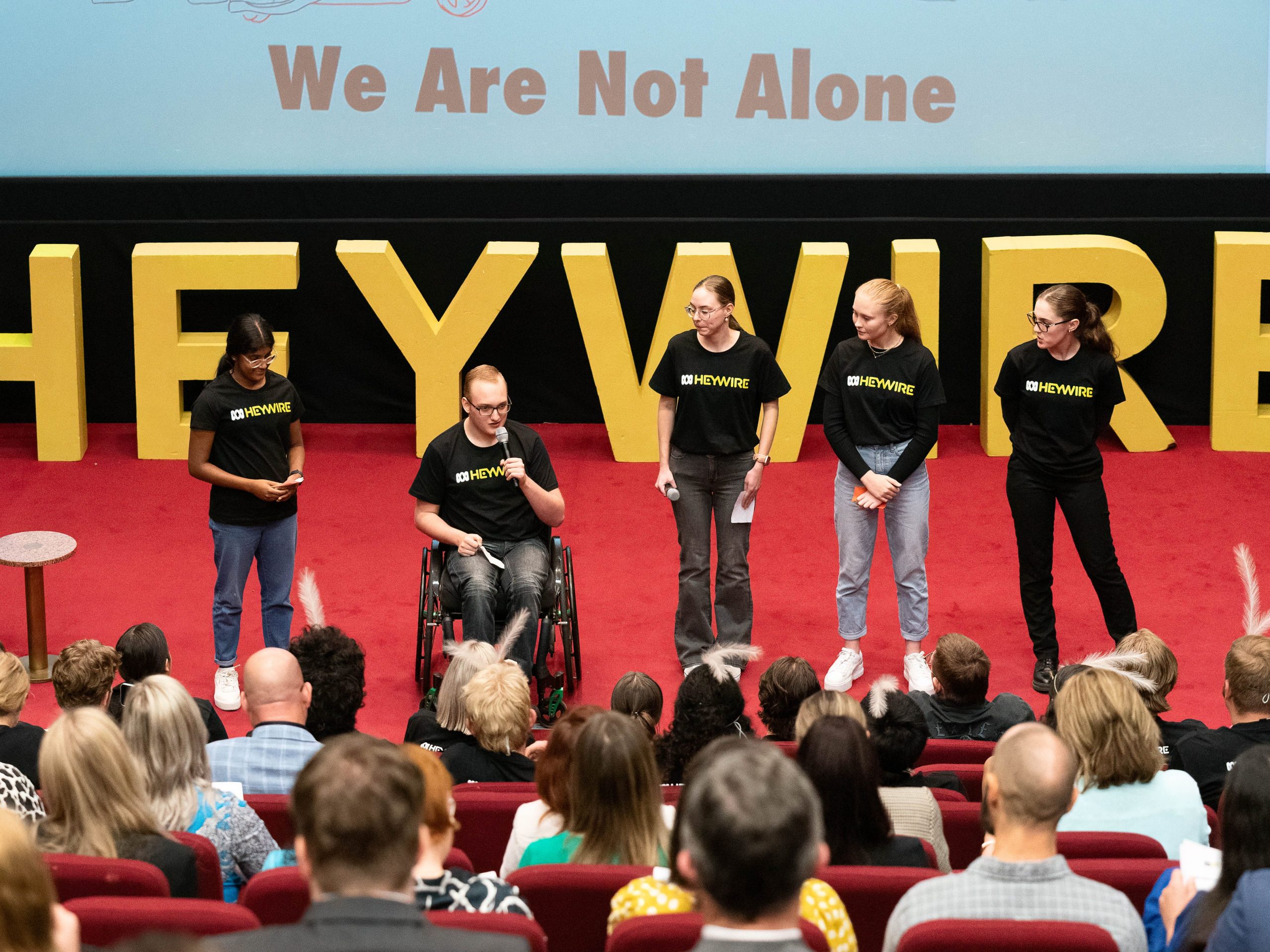Foundation for Rural & Regional Renewal (FRRR)

Following Black Summer, the Women’s Resource Centre (WRC) identified the need for more volunteers around women’s issues in Bega Valley. So, they decided to create a role for a Volunteer Program and Activities Coordination Project Worker.
Among the responsibilities of the role were:
- Revising induction processes and forms;
- Maintaining regular communication with volunteers;
- Ongoing support and supervision of volunteers;
- Developing rosters;
- Designing recruitment and workshop flyers;
- Liaising with workshop facilitators; and
- Liaising with other community organisations about volunteer opportunities.
Jade Simpson was recruited into the paid role, working 21 hours a week, supported through FRRR’s IRCF program. Bringing a wealth of insight on the local community and exceptional interpersonal skills to the role, Jade’s been highly successful in recruiting and retaining volunteers at the WRC. During the project, 21 women volunteered more than 350 hours of time at the Centre, taking on roles such as meet and greet, gardening, organising and tidying the Centre, providing admin support and contributing to the Southern Women’s Group historical research project. Jade has also been instrumental in the facilitation of more than 17 workshops. Several volunteers have now become regular weekly contributors, while others have since transitioned to work opportunities.
Jade says that a key element of success has been training, both for herself and WRC Manager Jane Hughes, in addition to the volunteers. Topics included grant writing; suicide prevention; digital mentoring; volunteer recruitment and retention; and domestic violence awareness.
According to Jade, the key to success however was having a clear plan for engagement and sharing the outcomes from the increased volunteering. This included speaking with local media to promote volunteering and at events such as Mental Health Week, the National volunteer Week Celebration, the ‘Many Hands’ Volunteer Expo and to Bega Valley Shire Council.
Having this role allowed Jane to focus on efficiently running the busy Centre in her own limited work hours and to be more readily available to the women accessing the service. The impact of the role has been so significant that WRC has been successful in obtaining further funding to maintain the role for a greater length of time.
“Jade has been incredible, the project has significantly increased volunteer engagement at the WRC. Her hard work has made it possible for us to provide essential training opportunities, to facilitate stronger community engagement and crucially, to work towards securing the continuity of the volunteer coordinator role through various grant applications,” Jane told us.
By Deb Samuels, People Portfolio Lead
With the rates of volunteering on the decline, how will we replace these tireless volunteers with a new generation of community leaders? It’s encouraging to know the Australian Government is making an investment in the future of volunteering. The recent press release from Minister Andrew Leigh’s office ‘Getting more young people back into volunteering’ provides some targets and strategies for engaging with and encouraging more youth volunteering and developing an open source ‘playbook’ for the sector.

Photo credit: Bradley Cummings
For rural, regional and remote communities, harnessing the energy and social consciousness of young people represents an incredible opportunity – and unique challenges – to do things differently when it comes to local community leadership and volunteerism. The work we do at FRRR supports so many volunteer-run groups providing critical services across these communities that may not otherwise exist. As the Government funded work unfolds to inspire future volunteers, developing a targeted strategy for engaging young people living in rural, regional and remote contexts will be so important to ensure the viability of these essential volunteer-run resources.
My work at FRRR provides an up-close view of the hopes, dreams and frustrations of young people living in rural, regional and remote Australia, through our partnership with the ABC Heywire, Takeover and Trailblazer programs. Young people who care deeply about fairness, diversity and equity, who are keenly aware that they will be emerging into adulthood in a world suffering the impacts of climate change, and who have grown up with technology and access to instant information at their fingertips. Young people who have lived their formative years impacted by a series of traumatic events – bushfires, drought, floods and a global pandemic – missing much anticipated milestones and often feeling unsure about what opportunities might still be open to them in the future. Young people who want to make sure the voices of diverse and marginalised people are heard, and who value flexibility and investing in wellbeing. Young people who, when given the opportunity and voice, are a source of innovative and practical solutions to some of the biggest challenges Australia’s rural, regional and remote communities are facing.
What I’m also seeing in our place-based capacity building programs, like Investing in Rural Community Futures (IRCF), is that the volunteers who have been the backbone of small community organisations for decades are now looking to retire and pass the baton. They are exhausted because so much of the recovery work, from the series of disasters in recent years, has fallen on their shoulders. They know the answer lies in engaging young people as the next generation of leaders but are often not quite sure how. We also see that young people want to connect and help, but they struggle to see themselves in the same roles their parents and grandparents have held, doing things the way they have always been done.
Instead of inviting regional young people to take a seat at the existing community leadership table, what if we first co-design a new ‘table’ with them? To hear and really listen to the ways they are inspired to connect. I couldn’t agree more that taking on a volunteer role can be empowering and career building for young people, but first we need to make sure we get the ecosystem right.
Could some volunteer opportunities be done remotely or more flexibly? Could a broader model of shared leadership be adopted? Could some traditional volunteer roles become paid or partially paid roles, so that young people without the means to donate their time, can still be involved in their community in meaningful ways and become inspired for a lifetime of connection to the sector? And definitely not to be left out – how can we make sure there’s a healthy dose of fun in volunteering?
There is sometimes an assumption made that because they are not showing up in familiar ways, young people don’t want to show up for community. What I see and hear is the exact opposite. Young people in regional communities are looking at complex problems, with fresh eyes, and coming up with entrepreneurial solutions. Like the volunteer Youth Leadership Committee at Heywire grantee Human Nature, who shaped their alumni program with the flexibility for young people to participate in activities that interest them and suit their personal life goals. And like the Regional Education Support Network (RESN), a youth volunteer-led organisation that has connected 1,400 school students with over 400 online peer tutoring volunteers across regional NSW and Victoria.
As young people imagine their futures, wouldn’t it be great if they had a career with a social impact focus on their radars as an exciting and viable one? To see staying in their rural, regional or remote community as a first choice to do work that aligns with their values, and not one that comes with a long list of compromises.
It brings me so much joy in my work at FRRR to know that we are committed to deeper engagement with regional young people. We are adding meaningful opportunities for their powerful voices to be present and truly heard in decision making that values their knowledge and reflects their values. This year, with generous donor support, we are embedding paid youth advisor roles to work alongside NFP’s implementing youth-designed projects funded through the Takeover Mildura program. We have also shifted a volunteer ABC Heywire Youth Internship role to a paid position, along with offering an honorarium for our Youth Advisory Panel who assess grant applications. This will ensure that all eligible young people have the opportunity to take a leadership role in deciding what projects best meet the needs of young people.
We never want to lose the opportunities for unpaid volunteering. However, when we are asking young people to share their expertise and lived experience, we need to make sure those unique skills are valued. Re-imagining how small volunteer-centred NFPs in remote, rural and regional communities might survive and continue to operate as vital community resources and services in the future is no small challenge. The answer lies with the young people who will both lead and need these programs and services. They are the solution, so let’s take every opportunity to listen and learn.
After the devastation of Bushfires, it is often the volunteers who help bring rural communities back to life. The Kinglake Ranges Neighbourhood House (KRNH) Inc coordinates more than 50 volunteers to run the Op Shop and regularly participate in activities at the Centre.
To better support the volunteers and encourage others to get involved they established the Volunteer Murrindindi Resource Centre, an online portal providing an easy to use platform for connecting volunteers and organisations to request and find volunteers, with huge success.
They sought funding to update the online portal and engage a person to embed the policies / procedures, establish an evaluation framework, train existing staff and further connect KRNH with outside volunteer engaging organisations.
Community meetings held at the Neighbourhood Centre have identified that many community groups are struggling to provide support in terms of training and governance, leading to problems recruiting fresh volunteers and retaining existing volunteers. The VMRC have developed Volunteering Policies and Procedures with the aim of supporting both the neighbourhood house and to share with local community groups. These need to be embedded into KRNH to ensure sustainability of the VMRC as an integral part of the KRNH.
With a Community Group Futures grant of $19,532 funded by the Victorian Bushfire Appeal Fund the KNRH were able to improve the online portal Volunteer Murrindindi within the broad scope of the Kinglake Ranges Neighbourhood House structure. We have developed the majority of the Policies and Procedures around the Volunteer Resource Centre and established annline presence through our Volunteer matching portal – www.volunteermurrindindi.com.au

